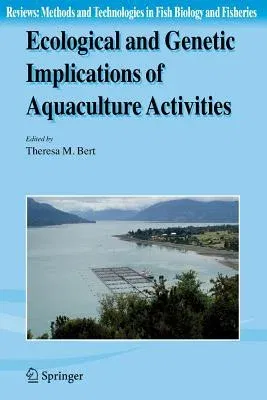Aquaculture is a rapidly growing industry and aquaculture practices can
directly interact with and depend upon the surrounding environment.
Therefore, the effects of all types of aquaculture on living natural
resources and ecosystems are of significant and increasing national and
international interest. In Ecological and Genetic Implications of
Aquaculture Activities, numerous nationally and internationally
prominent aquaculture researchers contribute 27 chapters that comprise
overviews of aquaculture effects on the environment, discussions of
genetic considerations, thorough documentation of aquaculture effects
and their solutions specific to countries, and approaches toward
environmentally sustainable aquaculture. Together, these chapters
comprise a comprehensive synthesis of many ecological and genetic
problems implicated in the practice of aquaculture and of many proven,
attempted, or postulated solutions to those problems. Many chapters can
serve as benchmark documentations of specific aquaculture effects on
biodiversity at different levels. The authorship is broadly
international; the authors represent 18 different countries or
international agencies and all continents except Antarctica. The
aquaculture effects and their solutions range from local to global and
simple to highly technical. Effects common to many levels and types of
aquaculture emerge, as well as both common and unique solutions.
Aquaculturists, aquaculture researchers, aquaculture industry
developers, conservation biologists, environmental scientists, resource
managers, and policy makers should find this book interesting and
informative.

